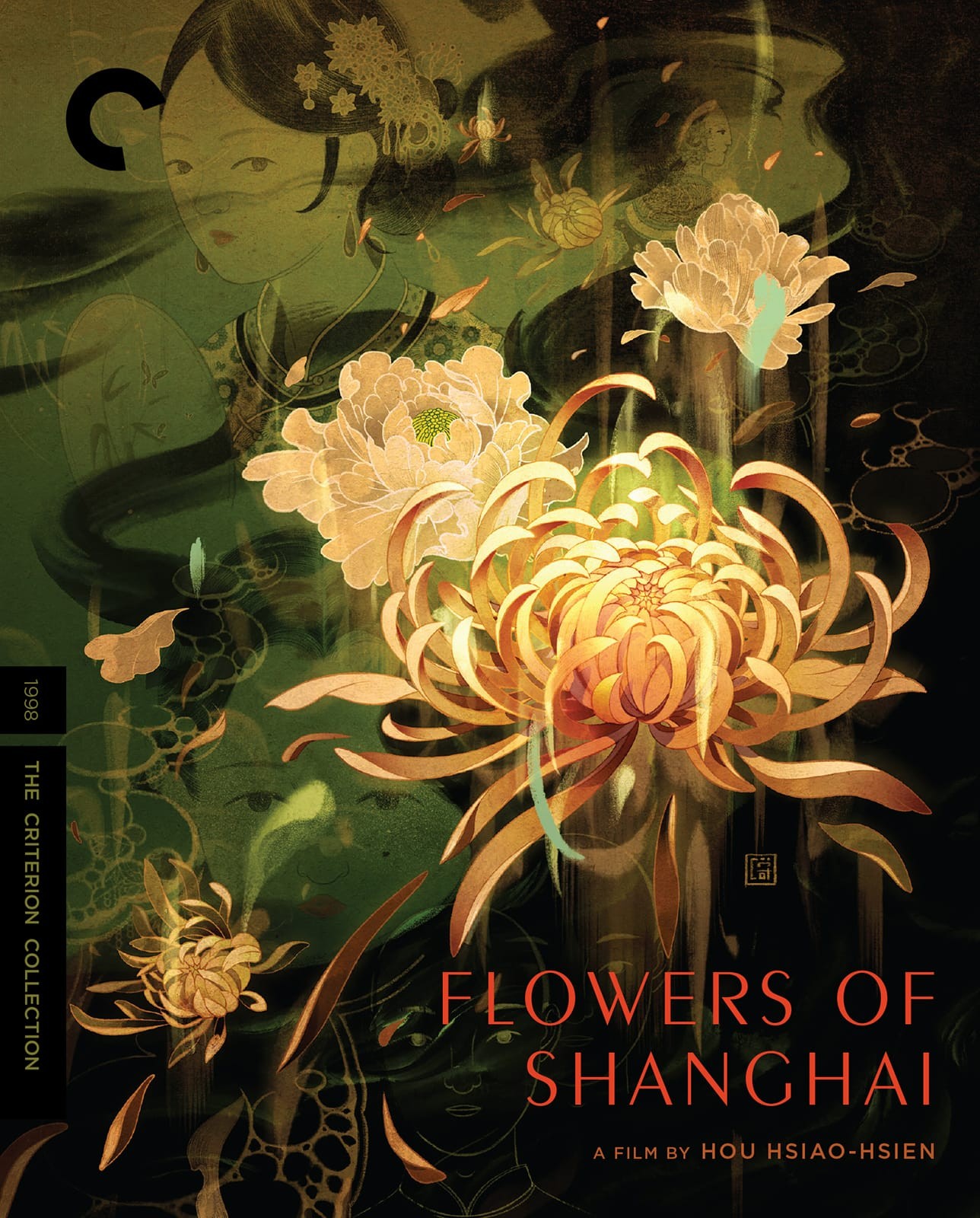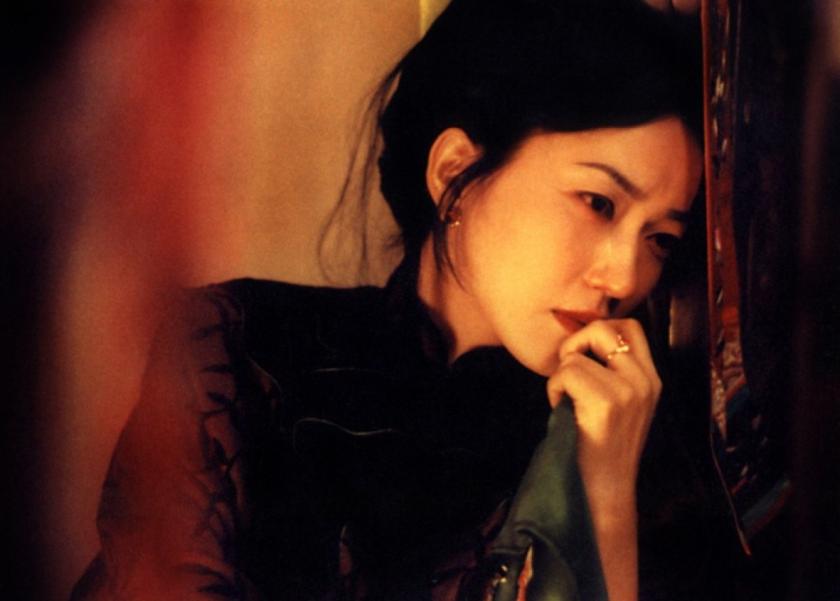Rounding out a decade of personal success – beginning with his Cannes Jury Prize-winning The Puppetmaster (1993), followed by a best director award for Good Men, Good Women (1995) – the Taiwanese director Hou Hsiao-hsien travelled to the Japanese harbour city of Hirado as part of his research for Flowers of Shanghai (1998). An unexpected work, the film emerged out of the ashes of a failed project to shoot a biopic of Zheng Chenggong, otherwise known as Koxinga, a Chinese Ming loyalist who fought against the emergent Qing Dynasty.
Decked in the finery of fin-de-siècle Shanghai, the flower girls more closely resemble the jewels whose names they bare rather than penniless sex workers. But this design, to attract male patronage, betrays a more gruesome reality. As is teased out through the film’s progression, each courtesan is revealed to live a life of effective slavery, purchased at an early age by the brothel’s owners, referred in faux-familial terms as “aunties”. With this, follows precarity. Crimson (Michiko Hada), spurned in favour of another girl by her long-term patron, Master Wang (Tony Leung), is plunged in a struggle for work. Emerald (Michelle Reis), by contrast, set on buying her freedom, is forced to engage her patron in negotiations of price, while the souring of Jade’s relationship with another young master brings about near-perilous consequences. These difficulties are not born of a deficit of character; though each proves well capable of deceit, they cannot deceive themselves as to their own inevitable decline. As Pearl reminds us: “Even the most popular of flower girls only has a fleeting period of fame” – the gravity of Flowers of Shanghai underpinned by the irrevocable creep of age.
 All of the above is drawn out exclusively through a series of conversations – some intimate, other rowdy – between the patrons, the girls, and their owners. Restricted by the formal constraints of a professional environment and a heavily-ritualised day-to-day existence, the protagonists are often sparing in words. Of the dialogue, too much is given over to discussions of debt (a salient topic, if not the most invigorating). Meanwhile romance, an alien concept in a world of otherwise transactional relationships, is never witnessed – nor is the brutality, through successive beatings, inflicted upon the erring girls. This is not a defect, but a strength. Instead, Hsiao-hsien employs a procession of long, unbroken shots of the lamp-lit brothel interiors, allowing facial expressions and body language to betray the characters’ deeper emotions and unspoken thoughts. Achieved with camera work that is alluringly simple, nowhere is this felt more strongly than in Flowers of Shanghai’s magnificent opening scene, with Hsiao-hsien allowing his gaze to patiently scan the full table of assembled guests, an intentional effort to mirror the perspective of a watching onlooker.
All of the above is drawn out exclusively through a series of conversations – some intimate, other rowdy – between the patrons, the girls, and their owners. Restricted by the formal constraints of a professional environment and a heavily-ritualised day-to-day existence, the protagonists are often sparing in words. Of the dialogue, too much is given over to discussions of debt (a salient topic, if not the most invigorating). Meanwhile romance, an alien concept in a world of otherwise transactional relationships, is never witnessed – nor is the brutality, through successive beatings, inflicted upon the erring girls. This is not a defect, but a strength. Instead, Hsiao-hsien employs a procession of long, unbroken shots of the lamp-lit brothel interiors, allowing facial expressions and body language to betray the characters’ deeper emotions and unspoken thoughts. Achieved with camera work that is alluringly simple, nowhere is this felt more strongly than in Flowers of Shanghai’s magnificent opening scene, with Hsiao-hsien allowing his gaze to patiently scan the full table of assembled guests, an intentional effort to mirror the perspective of a watching onlooker.
Along with The Boys from Fengkuei (1983) and A City of Sadness (1989), Flowers of Shanghai is one of three films that Hou Hsiao-hsien, as he acknowledges in the interview included in the disc’s special features, marked out for "preservation". Other supplements include an introduction by Tony Rayns, tracing the development of Hou’s cinema, and Beautiful Realism, a documentary exploring behind-the-scenes footage, and interviews with a number of film’s production team, specially-commissioned for this Criterion release, plus an essay by film scholar Jean Ma.















Add comment